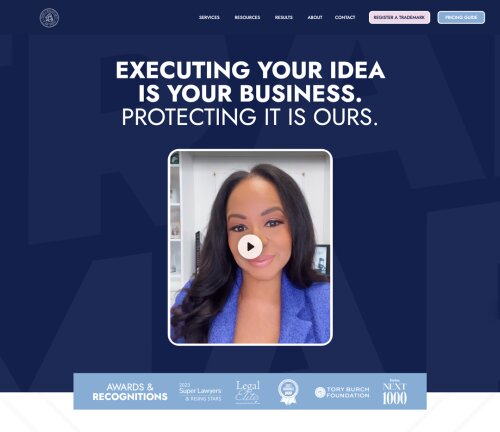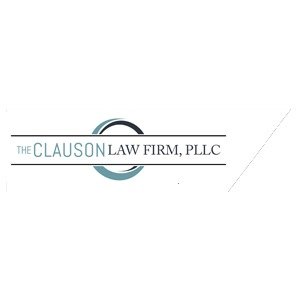Best Business Lawyers in North Carolina
Share your needs with us, get contacted by law firms.
Free. Takes 2 min.
Or refine your search by selecting a city:
List of the best lawyers in North Carolina, United States
United States Business Legal Questions answered by Lawyers
Browse our 1 legal question about Business in United States and read the lawyer answers, or ask your own questions for free.
- How do I legally protect my idea before selling or licensing it to a company?
- I have a makeup product idea that I want to sell or license, not the product itself. It is influenced by a product that was recently launched. Therefore, I want to sell/license to the company that launched said product. After some research, I contacted a patent attorney who explained that... Read more →
-
Lawyer answer by P.O OHIKHENA & Co
Good day,A patent will not be applicable since it's still an idea. You can go into an MOU(Memorandum of understanding) with the said company and also an NDA.You can contact me for my insight. Visit our profile and send us...
Read full answer
United States Business Legal Articles
Browse our 2 legal articles about Business in United States written by expert lawyers.
- NY 2026 Corp Tax: Thresholds & Franchise
- For tax years beginning on or after January 1, 2026, New York businesses will only be required to make estimated tax payments if their expected New York tax (including any MTA surcharge) is at least $5,000, up from $1,000. Many small and some mid-sized New York corporations and S corporations... Read more →
- Texas AI Compliance 2026 United States Data Privacy Rules
- By 2026, Texas agencies and many businesses that build, host, or support AI tools for government or consumer-facing decisions will face stricter disclosure and anti-discrimination requirements. Texas is pairing its new data privacy framework (Texas Data Privacy and Security Act) with AI-specific rules that target "algorithmic discrimination" in areas like... Read more →
About Business Law in North Carolina, United States
Business law in North Carolina covers a wide range of legal rules, statutes, and regulations that apply to starting, operating, and dissolving businesses within the state. Whether you are a sole proprietor or managing a large corporation, understanding how North Carolina law impacts your business decisions is crucial. The state is home to a vibrant small business community as well as branches of major national and international corporations, making it important for business owners and entrepreneurs to have a clear grasp on local legal requirements.
Why You May Need a Lawyer
Business owners and entrepreneurs in North Carolina often seek legal advice at various stages of their business journeys. Here are some common situations where the help of an attorney can be crucial:
- Choosing the right business structure (such as LLC, corporation, partnership, or sole proprietorship)
- Drafting, reviewing, or negotiating contracts and agreements with partners, vendors, or employees
- Protecting intellectual property such as trademarks, copyrights, and patents
- Ensuring compliance with state and federal employment laws
- Resolving disputes, including breach of contract or partnership disagreements
- Assisting with mergers, acquisitions, business purchases, or sales
- Dealing with tax issues and audits
- Understanding and complying with local permits and licensing rules
- Handling business dissolution or bankruptcy procedures
- Navigating regulatory issues specific to specialized industries
Local Laws Overview
Business law in North Carolina is governed by a mix of state statutes, administrative regulations, and local ordinances. Here are some key legal areas relevant for anyone starting or operating a business in North Carolina:
- Business Formation: The state requires registration for most entities through the North Carolina Secretary of State, including corporations, limited liability companies, and certain partnerships.
- Employment Law: North Carolina follows both state and federal laws on minimum wage, overtime, anti-discrimination, and workplace safety. The state is an at-will employment state, which influences hiring and termination practices.
- Contracts: Contracts must be legally enforceable, and North Carolina follows standard contract laws with some state-specific nuances, especially regarding non-compete agreements.
- Licensing and Permits: Depending on your business type and location, you may need local, state, or specialty licenses and permits.
- Taxation: North Carolina businesses must adhere to state income tax, sales tax, and may be subject to other local business taxes.
- Consumer Protection: The North Carolina Attorney General oversees enforcement of consumer protection laws relating to advertising, sales, and services.
- Litigation and Dispute Resolution: Businesses in the state are subject to the North Carolina Business Court and general court system for resolving disputes.
Frequently Asked Questions
What is the most common business structure in North Carolina?
The Limited Liability Company, or LLC, is one of the most popular choices due to its flexibility and protection from personal liability.
How do I register my business in North Carolina?
Most businesses need to register with the North Carolina Secretary of State, especially LLCs and corporations. Sole proprietorships often register with local county offices.
Do I need a business license to operate in North Carolina?
This depends on your business type and location. Some businesses require state licenses, while others need city or county permits.
What are the basic requirements for a business contract in North Carolina?
A valid contract usually requires an offer, acceptance, consideration (something of value exchanged), and mutual agreement. Certain contracts must be in writing to be enforceable.
When am I required to collect sales tax?
If you sell taxable goods or certain services in North Carolina, you must collect and remit sales tax to the North Carolina Department of Revenue.
How does at-will employment work in North Carolina?
Employers or employees can terminate employment for any legal reason at any time. However, terminations cannot be for discriminatory or retaliatory reasons.
What is the North Carolina Business Court?
This is a special court designed to handle complex business and commercial disputes, offering specialized judges familiar with intricate business matters.
Do I need an attorney to start a business?
While it is not legally required for all businesses, consulting an attorney can help you choose the right entity, draft important documents, and avoid costly mistakes in the future.
What should I do if my business is sued?
Promptly seek legal advice. Timely action and professional guidance are key to preserving your rights and mounting a defense.
How can I protect my business's intellectual property?
You can register your trademarks, copyrights, and, if applicable, patents with federal and, in some cases, state agencies to protect your brand and creations.
Additional Resources
North Carolina business owners can find support and legal guidance through the following organizations:
- North Carolina Secretary of State - Business Registration Division
- North Carolina Department of Revenue
- North Carolina Department of Commerce
- North Carolina Small Business and Technology Development Center (SBTDC)
- North Carolina Bar Association - Business Law Section
- United States Small Business Administration (SBA) - North Carolina District Office
- Local Chambers of Commerce
Next Steps
If you believe you need legal assistance with your business in North Carolina, consider the following actions:
- Make a list of your questions and concerns
- Gather relevant documents such as contracts, registration paperwork, or correspondence
- Contact a qualified North Carolina business law attorney or use the North Carolina Bar Association’s lawyer referral service
- Schedule a consultation to discuss your specific needs and determine the best approach moving forward
- Stay proactive by keeping updated on changes in local and state business laws
Taking the right legal steps early can prevent complications and help your business thrive in North Carolina’s dynamic economic environment.
Lawzana helps you find the best lawyers and law firms in North Carolina through a curated and pre-screened list of qualified legal professionals. Our platform offers rankings and detailed profiles of attorneys and law firms, allowing you to compare based on practice areas, including Business, experience, and client feedback.
Each profile includes a description of the firm's areas of practice, client reviews, team members and partners, year of establishment, spoken languages, office locations, contact information, social media presence, and any published articles or resources. Most firms on our platform speak English and are experienced in both local and international legal matters.
Get a quote from top-rated law firms in North Carolina, United States — quickly, securely, and without unnecessary hassle.
Disclaimer:
The information provided on this page is for general informational purposes only and does not constitute legal advice. While we strive to ensure the accuracy and relevance of the content, legal information may change over time, and interpretations of the law can vary. You should always consult with a qualified legal professional for advice specific to your situation.
We disclaim all liability for actions taken or not taken based on the content of this page. If you believe any information is incorrect or outdated, please contact us, and we will review and update it where appropriate.
Browse business law firms by service in North Carolina, United States
North Carolina, United States Attorneys in related practice areas.
Browse business law firms by city in North Carolina
Refine your search by selecting a city.













